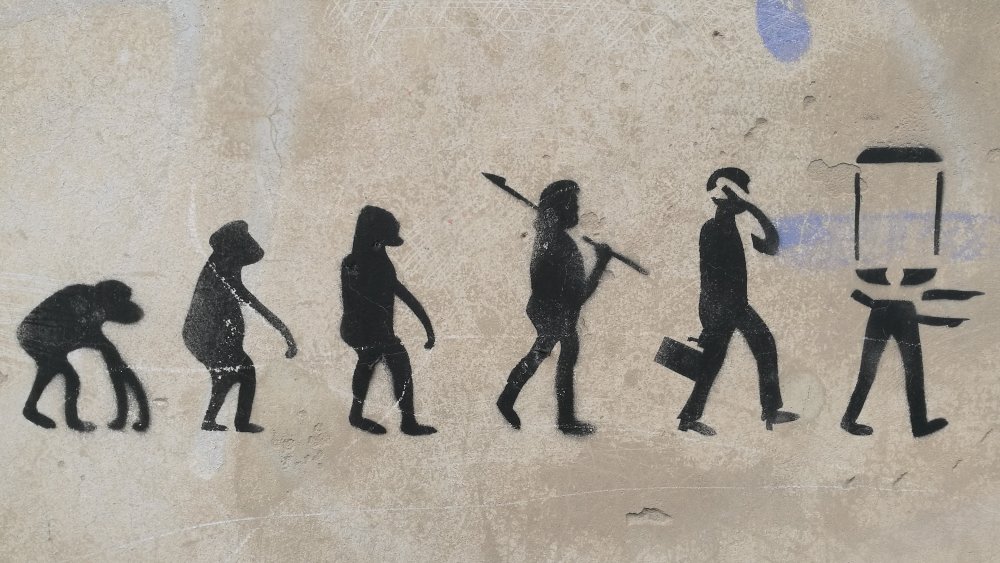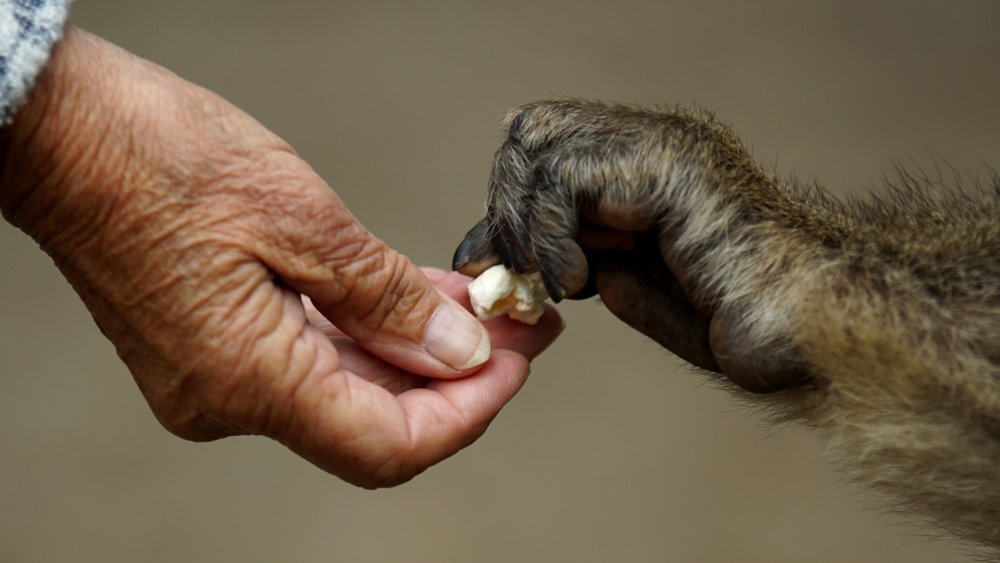The Reason All Primates Haven't Evolved Into Humans
Humans seem obsessed with setting themselves apart from the rest of the animal kingdom. Homo sapiens touts a powerful brain and is always thinking of ways to use its opposable thumbs to thumb its nose at nature. People replaced literal horse power with car engines, flooded the bird world with airplanes, and turned the food chain into a grocery store chain. But the theory of evolution throws a monkey wrench into the works, asserting that humans are great apes and giving rise to the fear that the thinking man isn't as great as he thinks.
For some the idea was (or still is) unthinkable. For eons man had seen himself as the apple of God's eye, not a random branch on a godless family tree. Even the godfather of evolutionary theory, Charles Darwin, struggled with the implications, writing privately, "It is as if one were confessing to a murder." When he publicly expressed his views on human evolution in 1871's The Descent of Man, man fell into a pattern of debating whether humans "descended from monkeys," according to the British Library. In the nearly 150 years since then, the debate hasn't evolved very much. A 2015 article by anthropological geneticist Jennifer Raff points out that one of the questions commonly posed by creationists and people confused by evolution is: "If we evolved from monkeys, why are there still monkeys?"
Hey, hey, we're not monkeys
Before getting into the nitty-gritty, it's worth noting that monkeys aren't actually apes but rather a related but distinct group of primates, per the Smithsonian Institute. Humans belong to the primate category of great apes, along with chimpanzees, gorillas, and orangutans. DNA evidence suggests that people and "chimpanzees diverged from a common ancestor species that lived between 8 and 6 million years ago." The link between monkeys and apes existed about 25 million years ago.
Why do the monkeys and nonhuman apes still exist? Because "they're doing just fine," explained paleontologist Briana Pobiner. Species go extinct due to a catastrophic inability to adapt to their environment, and thus far the remaining primates have managed to cope. Anthropology professor Lynne Isbell stressed that "evolution isn't a progression." If a creature can successfully reproduce and thrive, then it's fit to survive. So the fact that humans seem (in their own minds) like the pinnacle of ape greatness makes no difference.

